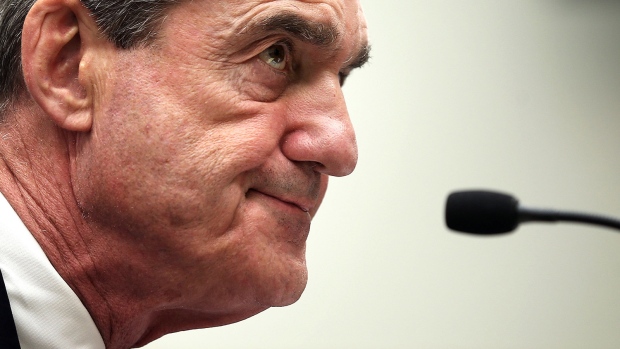Jan 30, 2019
Hackers spread ‘Putin’s chef’ case evidence online: Mueller
, Bloomberg News

Special Counsel Robert Mueller told a federal judge that more than 1,000 confidential files compiled in his case against hackers supported by a friend of Russian President Vladimir Putin had somehow found their way onto the internet, where the evidence was widely disseminated, in defiance of the judge’s order.
The revelation came in a filing involving Concord Management and Consulting LLC, a firm controlled by Yevgeny Prigozhin, who runs a large catering business and is known as "Putin’s chef."
Mueller’s team said "non-sensitive" evidence that had been shared exclusively with Concord’s U.S. law firm, Reed Smith LLP, ended up in an online file-sharing portal, apparently as a result of a hacking operation targeting the law firm.
“We’ve got access to the Special Counsel Mueller’s probe database as we hacked Russian server with info from the Russian troll case Concord LLC v. Mueller,” a posting from a newly created Twitter account named @HackingRedstone said on Oct. 22, 2018, according to Mueller’s filing. “You can view all the files Mueller had about the IRA and Russian collusion. Enjoy the reading!”
Eric Dubelier, Concord’s lawyer, declined to comment on the filing.
Mueller was responding to a motion from Concord accusing the special counsel of unfairly attempting to hide evidence of its alleged criminal behavior through a blanket protective order issued last year by U.S. District Judge Dabney Friedrich in Washington.
Mueller’s team pointed to the dissemination of its non-sensitive filings (which it did not blame on the law firm) as grounds for keeping sensitive evidence in the case under tight control. Concord has argued that its owner, Prigozhin, should be allowed to review evidence compiled against him and his company.
The special counsel’s filing noted that neither Prigozhin nor other Russian nationals have come to the U.S. to face the charges against them. "To the extent Concord faces challenges in mounting its defense, it is because Prigozhin refuses to come to the United States to review the sensitive discovery," prosecutors wrote. “That is a problem of Concord’s own making.”
Prigozhin would face arrest if he chose to come to the U.S.








